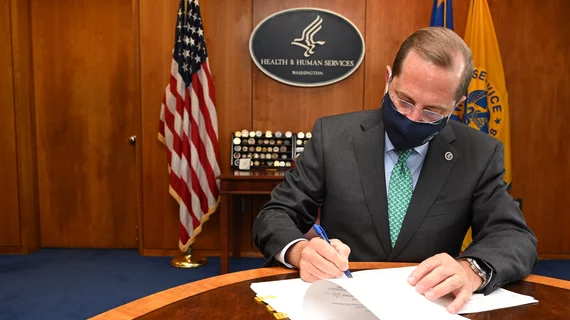HHS officially extends COVID-19 public health emergency declaration
Health and Human Services has officially extended the COVID-19 public health emergency declaration for another 90 days, a move favored by radiologists, hospitals and other providers.
Secretary Alex Azar endorsed the renewal on Thursday night, ahead of its expiration on Saturday, July 25. With it comes several policy implications for physicians that would have disappeared over the weekend.
“Today I signed a renewal of the COVID-19 national public health emergency declaration,” Azar tweeted July 23. “The administration will continue its whole-of-America response to ensure Americans can get the care they need throughout the pandemic.”
The American College of Radiology had advocated for the extension. In a news post earlier this month, ACR highlighted several ramifications of the renewal, including continuing requirements that payers cover COVID testing without cost-sharing, telehealth waivers, and the 20% add-on Medicare payment for treating coronavirus inpatients.
“We need to ensure all physician practices have access to continued federal public health emergency protections to reassure patients that they will continue to have uninterrupted access to these valuable services,” Cynthia Moran, ACR’s executive VP of government relations, economics and health policy, told Radiology Business last month.

